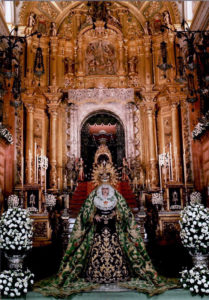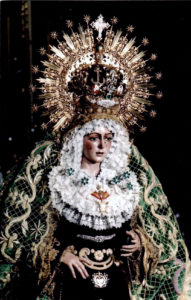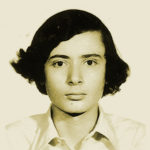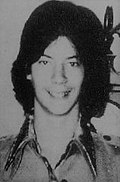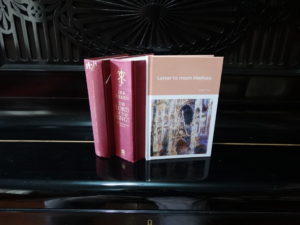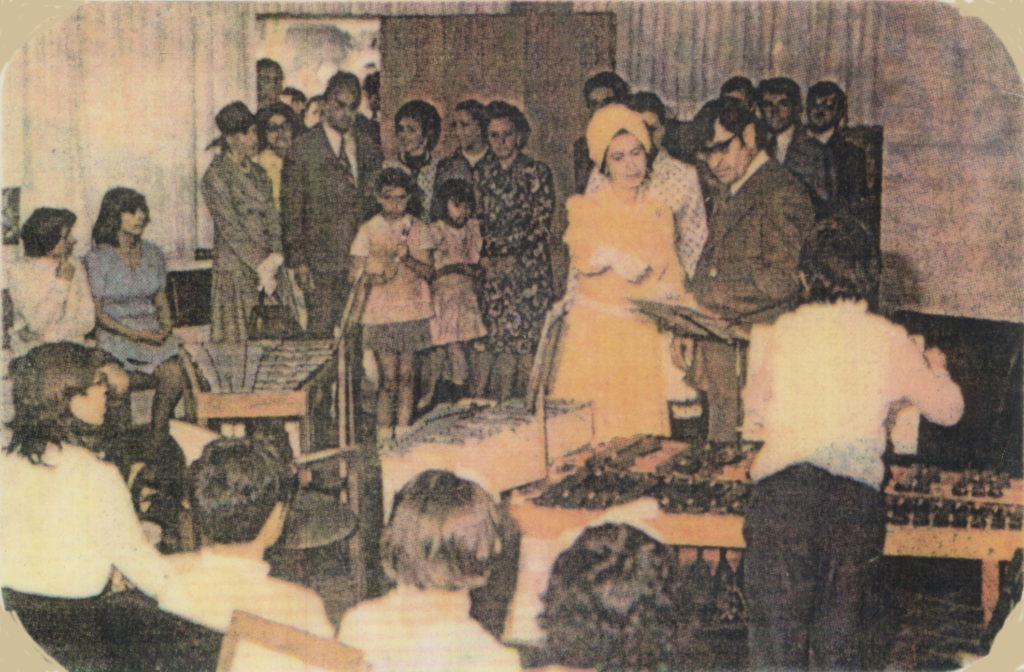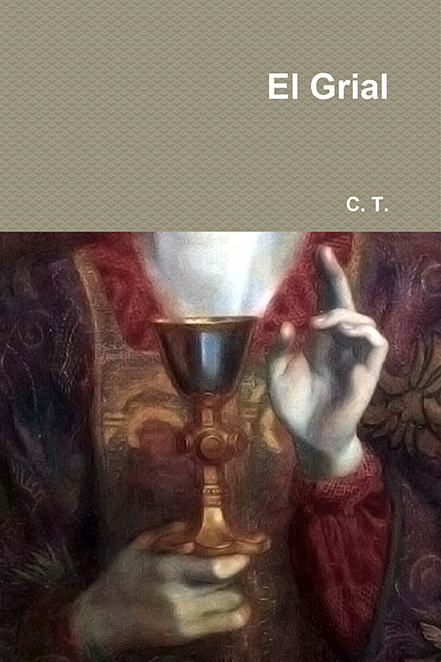– For the context of these translations click here –
The dispute over images begins
If we are well-informed about the 6th century of Byzantine history, thanks especially to the detailed descriptions of the historian Procopius, the 7th and 8th centuries remain in great obscurity. Only the chronicles of two theologians, both defenders of images and who died in exile—that of the patriarch of Constantinople Nicephorus and, somewhat more extensively, that of Theophanes the Confessor—shed little light on that violent period, within which the late 7th and early 8th centuries are regarded as one of the darkest epochs of Byzantine history.
Emperor Justinian II (685-695, 705-711), who tried so hard to derive imperial power from the will of God, had many thousands of Slavic families, previously deported by him, executed. In 695 he was expelled from the throne and, with his nose cut off, banished to Crimea. Subsequent rulers succeeded one another in rapid succession, and for two decades total anarchy triumphed. In addition, the Bulgars, nomads from the Volga territories, broke into the empire and in 711 advanced under Chan Terwel to the vicinity of Constantinople. In 717 the Arabs reappeared and besieged the capital, although Leo III (717-741) the Isaurian was able to repel them. But it was precisely this saviour of Byzantium, so exalted by Christianity to this day, who was also the author of a bloody Christian quarrel, which shook the Byzantine world for more than a century and more violently than any other religious dispute, and contributed to no small way to the estrangement between eastern and western Rome.
By general estimation the conflict began in 726, when a devastating earthquake in the southern Aegean was interpreted as a ‘judgement of God’ because of the new ‘idolatry’ that had penetrated the Church: the worship of images. Emperor Leo III ordered the removal of all representations of saints, martyrs and angels, and in 730 ordered their destruction, not excluding images of Christ and Mary. Iconoclasm, which caught on not only among the clergy but also among the masses, has often been the subject of study but has been explained perhaps more contradictorily than any other phenomenon in Byzantine history. What is certain is that it shook the empire to hardly imaginable limits. Much more than a mere theological dispute or religious reform movement, it also represented a clash between civil and ecclesiastical power and reduced the state to a heap of ruins; and this at a time of a certain political recovery within and beyond the borders and when the Christological controversies had already ended.
Moreover, the starting point of the dispute over images was a purely theological-dogmatic problem. Already the primitive Indo-European religion was devoid of images, as were the Vedic, Zarathustrian, Old Roman and Old Germanic religions. And so was the Jewish religion in particular. The Old Testament already strictly forbade any worship of images. Nor did early Christianity know of any figurative representation of God. Quite the contrary. Just as ancient Judaism expressly condemned the making of representations and just as the prophets mocked ‘those who make a god and worship an idol’, so also the early church fathers fought long and hard against the worship of images, which was to become so widespread later on.
Even in the 4th century, theologians such as Eusebius and Archbishop Epiphanius of Salamis were against graphic reproductions, while the Council of Elvira forbade the reproduction and worship of images. On the contrary, it was ‘heretics’, the Gnostics, who initiated the change and who introduced the image of Christ and its veneration into Christianity.
Its use spread to the East from the 4th century, and by the 6th century it was as widespread there as it is today. Not only images of Christ were venerated, but also those of Mary, the saints and angels. It was mainly the monks who encouraged this practice for a very specific material reason: iconolatry was part of their business (e.g. the pilgrimages that brought money). The pro-icon theologians (iconodules) justified it all, because according to their interpretation it was not the dead image that was worshipped, but the living God, and, as Nicephorus said, ‘a vision leads to faith’. On the other hand, the destroyers of images (iconoclasts) tried to give renewed validity to the Christian prescriptions, which were unquestionably older.
But the people venerated the icons themselves as bearers of health and miracles. The icon became the content and synthesis of their faith. It was engraved on their furniture, clothes and armour. Thanks to heaven or priestly art, icons began to speak, bleed, to defend themselves when attacked. Moreover, there were eventually icons that represented a real novelty, since they were ‘not made by human hands’ (acheiropoietai).
______ 卐 ______
 Editor’s Note: For The West’s Darkest Hour, the only thing that matters is the destruction of Greco-Roman art by Christians (Christians destroying their art is as good for us as BLM destroying the statues of white Christians). In this image we see St Benedict’s monks destroying a statue of Apollo. Regarding those images Karlheinz Deschner speaks of in the last sentence, the supposedly miraculous images ‘not made by human hands’, for two years I researched the most famous relic of this type, the image on the shroud of Turin, and published my findings here. In my humble opinion, the so-called ‘shroud’ of Turin was the last ditch of Christendom’s dying apologetics (the apologetics of American fundamentalists is so ridiculous that no one takes it seriously). Deschner continues:
Editor’s Note: For The West’s Darkest Hour, the only thing that matters is the destruction of Greco-Roman art by Christians (Christians destroying their art is as good for us as BLM destroying the statues of white Christians). In this image we see St Benedict’s monks destroying a statue of Apollo. Regarding those images Karlheinz Deschner speaks of in the last sentence, the supposedly miraculous images ‘not made by human hands’, for two years I researched the most famous relic of this type, the image on the shroud of Turin, and published my findings here. In my humble opinion, the so-called ‘shroud’ of Turin was the last ditch of Christendom’s dying apologetics (the apologetics of American fundamentalists is so ridiculous that no one takes it seriously). Deschner continues:
______ 卐 ______
Thus the believing people increasingly exalted the images, identifying them with the saint they represented. They kissed the statues and the representations, and lit candles and lamps for them. The sick sometimes took coloured and scratched particles from them to obtain health. They were incensed and the faithful knelt before them; in a word, the people treated such objects in exactly the same way as the pagans treated their ‘idols’.
And it was precisely the opponents of iconolatry, the iconoclasts, who interpreted this as a kind of idolatry. They came from the imperial household, from the army and especially from certain regions under the influence of anti-image Islam, such as the territories of Asia Minor. They also lived in the borderlands of the eastern part of the empire, where especially the Paulician admirers of the Apostle Paul were opposed to the worship of the cross and images, ceremonies and sacraments. These were ‘heretical’ Christians, who first appeared in Armenia in the middle of the 7th century and who for more than two centuries were extremely active on the eastern Byzantine frontier.
It is, however, curious, and at the same time sheds some light on the whole controversy, that the emperors and army, who were the most bitter enemies of the cult of images, had earlier been its special promoters. The rulers of the 6th and 7th centuries, taking advantage of the delirium of the masses for images, had used them for their political and especially military purposes. The images were led into countless battles and whole cities were placed under their protection, turning them into fortress defenders.
______ 卐 ______
Editor’s note: This seems like a long time ago. But for me it is very close. When years ago I tried to tell my Catholic father that the Islamisation of Europe was a very alarming phenomenon, and France came into the conversation, he replied triumphantly: ‘Nothing can happen there: there is the Virgin of Lourdes!’
 My smiling father’s statement couldn’t be understood without an explanation. In 1883 my great-grandfather Damián Tort Rafols, who could speak French, brought back a bronze replica of the Virgin’s grotto, which he bought in France. The replica became an object of worship for the Tort people of Chiapas and Puebla, and still stands a few metres away from where I am writing. The level at which the ancient Tort worshipped this replica, according to intergenerational anecdotes, has always impressed, and embarrassed, me.
My smiling father’s statement couldn’t be understood without an explanation. In 1883 my great-grandfather Damián Tort Rafols, who could speak French, brought back a bronze replica of the Virgin’s grotto, which he bought in France. The replica became an object of worship for the Tort people of Chiapas and Puebla, and still stands a few metres away from where I am writing. The level at which the ancient Tort worshipped this replica, according to intergenerational anecdotes, has always impressed, and embarrassed, me.
What struck me most about my father’s triumphant declaration is that, more than a thousand years after that Byzantine delirium, there are still people who believe such things as that a specific Virgin can protect a city or nation, be it modern France or any other. Deschner continues:
______ 卐 ______
But all too often they had failed in that function as one city after another fell to the ‘infidels’, which undoubtedly brings us closer to the direct cause of iconoclasm. If the images had performed the miracles expected of them, their destruction would probably never have happened. ‘But the icons hadn’t delivered what the people expected’ (Mango).
The revolt had come mainly from the Eastern episcopate. The iconoclastic party had its main representatives in the minor Asian bishops Constantine of Nakoleia, Metropolitan Thomas of Klaudioupolis and Theodore of Ephesus. The iconoclastic party also had its first fatalities: several of the soldiers sent to remove the images were killed in a popular uprising. The iconodules, the image-worshippers, were found in almost every corner of the empire. In the East they included the nonagenarian Patriarch Germanos of Constantinople (715-730) and the metropolitan John of Symnada, as well as monks. In the West, the cult of images was defended by the great masses, and above all by the papacy, which claimed greater autonomy and even political leadership from the very beginning. It was no coincidence that Byzantine sovereignty succumbed to a considerable extent in central Italy.
The imperial court soon renounced iconoclastic actions in Italy. Although the monarch Constantine V (741-776), a vehement enemy of images, who declared himself a true friend of Christ and a worshipper not of his image but his cross, personally wrote some polemical writings and created his own theology, especially against the representation of Christ, which for him was an expression of Nestorianism or Monophysitism, i.e. the separation or mixing of ‘the two natures’ in Christ. And the Council of Constantinople (757) rejected outright the worship of images as the work of Satan and as idolatry.
